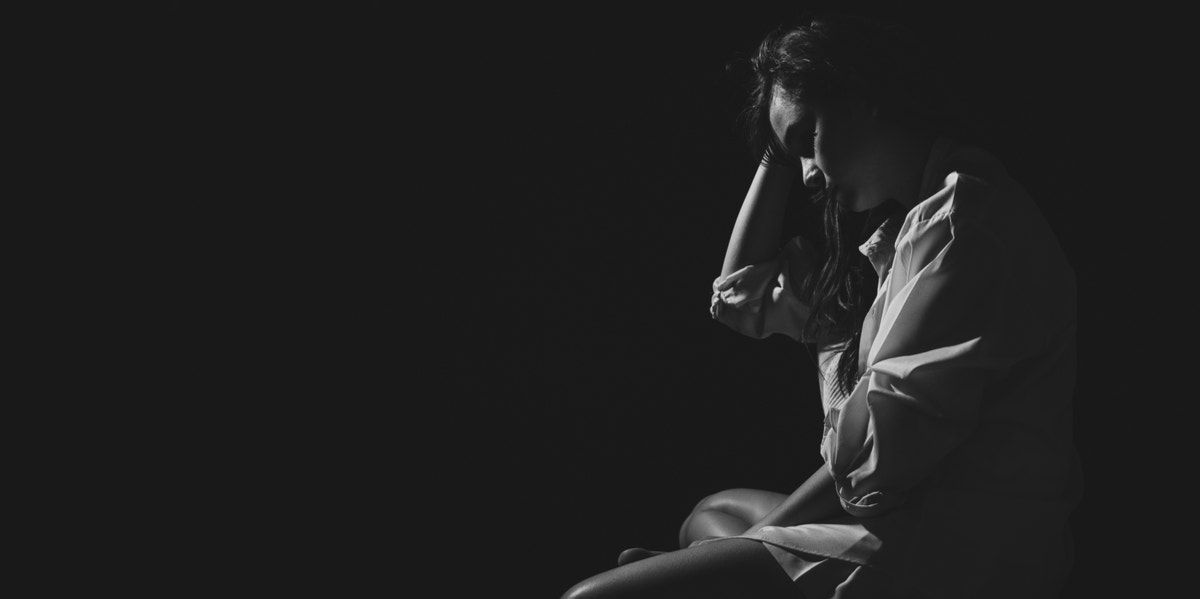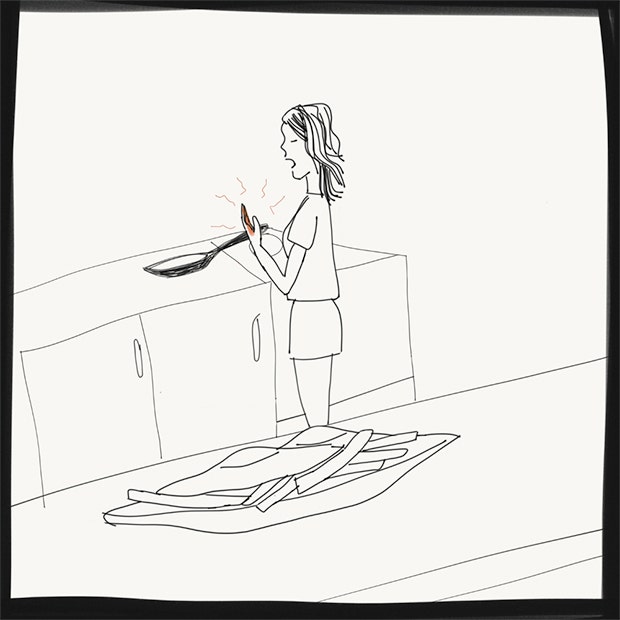Autistic Women Understand Society’s Insane Expectations Of Women Better Than Anyone
What do you do when you don’t measure up compared to men OR women?
 vipubadee / Shutterstock
vipubadee / Shutterstock 
So many burns just for eggs and chips, how TF do people have dinner parties? Illustration by author.
Autistic people are at high risk of suicide, and for women and girls on the spectrum, this risk is even higher. This is sad and shocking, but it doesn’t surprise me.
As an autistic AFAB (assigned female at birth) human I have experienced plenty of suicide ideation, and honestly, it seems like a fair response to my experience of the earth.
It’s hard out here for women.
1 in 3 women will experience domestic abuse in their lifetime. 137,000 girls and women live with the consequences of FGM in the UK. And that number is closer to 200,000,000 worldwide.
It’s soul-eroding, feeling consistently physically under threat. Being constantly undervalued. Told that your very body is wrong.
Women weren’t allowed to vote until 1918. We were still treated as second-class citizens in 1949 when Simone de Beauvoir wrote The Second Sex. Kristi Coulter penned a viral essay about how women use booze to numb this feeling in 2016.
Ask Britney Spears, Meghan Markle, or Chrissy Teigen how free women are in 2021. Being rich and famous can’t save you from misogynists (or domestic abuse.)
I’m white and people l don’t believe I’m autistic, so there are many people who have it much worse than me.
But the truth is I have found the expectations placed on me, even as a white woman ludicrous and debilitating.
Being autistic has helped me shrug off much of the burden of femininity. It never made any sense to me and so I mostly just ignored it. But not without cost.
RELATED: I Have Autism And Here's 12 Things You Need To Know About Dating Me
All my life I have been told — directly and indirectly — I am weird. Clumsy. Awkward. Slow. Annoying. Cold.
Turns out I’m not the only one. Many autistic women are sharing their experiences on social media and in books. Their voices are talking in unison and beginning to be heard.
Another damaging part of the messaging I received as a girl/young woman was that I was not a real girl/woman. So, I was second-class to boys, and I was second-class to girls too.
This social rejection doesn’t help the often ephemeral nature of the autistic sense of self. As a kid, I was pushed out of boys' games for being a girl. And pushed out of girls' games for not being girl enough. This left me in a precarious position. Perhaps unsurprisingly, I sought refuge in beer and recreational drugs.
Lately, I wonder, did I enjoy being alone because I am autistic? Or had rejection by neurotypical society made solitude feel safest?
As an unknowingly autistic woman, I compared myself to proper girls and found myself lacking. I was half-female, at most. Skirts and heels made me feel like I was in fancy dress. A part-time woman, perhaps?
When I was diagnosed last year, I discovered gender dysphoria is often part of autism. There was something very comforting about this. Belonging beckoned. Maybe there was a place I could fit.
Suicidal ideation is more common among autistic adults than neurotypicals, too. Discovering this, I felt validated and compassionate.
It isn’t just me. It is tough living in a world that wasn’t built for you.
Many women remain undiagnosed because autism is still considered a male-affecting disorder. This stems from Simon Baron-Cohen’s now-controversial extreme male brain theory.
But now that I have a diagnosis of autism, I no longer feel like there’s something wrong with me. I believe Temple Grandin when she says: “different not less.”
I don’t have Generalized Anxiety Disorder. I’m not depressed. I don’t have cyclothymia. I’m autistic.
This is the certificate the doctor gave me.
A fitting diagnosis helps me understand how to take care of myself. It’s like realizing you take diesel, but you’ve been trying to run on unleaded. No wonder the road has seemed bumpy!
Six months after my diagnosis my self-perception has changed in a positive way. I forgive myself for my mistakes, slow development, and confounding decisions. I view myself with sympathy and pride. I can see how far I’ve come, often with little useful support — sometimes while experiencing abuse (which I didn’t even recognize, bless me).
Society’s expectations of women are unjust and insane.
Men often do less and are appreciated more. And if women get angry about this, we are labeled bitter.
OF COURSE, WE ARE MOTHER-FLAMING BITTER.
Especially when people (okay, some men) deny that sexism even exists. My mental health looped around that doomed pinball machine for years. First-world problems. But they stopped me from being a useful and functional member of society for decades.
So if you are a woman, put your feet up and then praise yourself for how amazing you are.
And if you are an autistic woman, then put your feet up twice, baby. Give yourself another pep talk. Tell yourself all the things you long to hear, and work on believing them.
You are valuable and lovable, and respect is the bare minimum you deserve. So please:
Be kind to yourself. Try not to belittle yourself so much. Try not to make jokes at your own expense so often. Be proud of how much you have overcome.
You are so so lovable.
RELATED: 5 Specific Life Challenges I've Faced As A Man With Autism
Chelsey Flood is a writer, author, and lecturer. They have been featured in The Startup, Medium, The Bristol Cable, and more. Follow them on Twitter.

